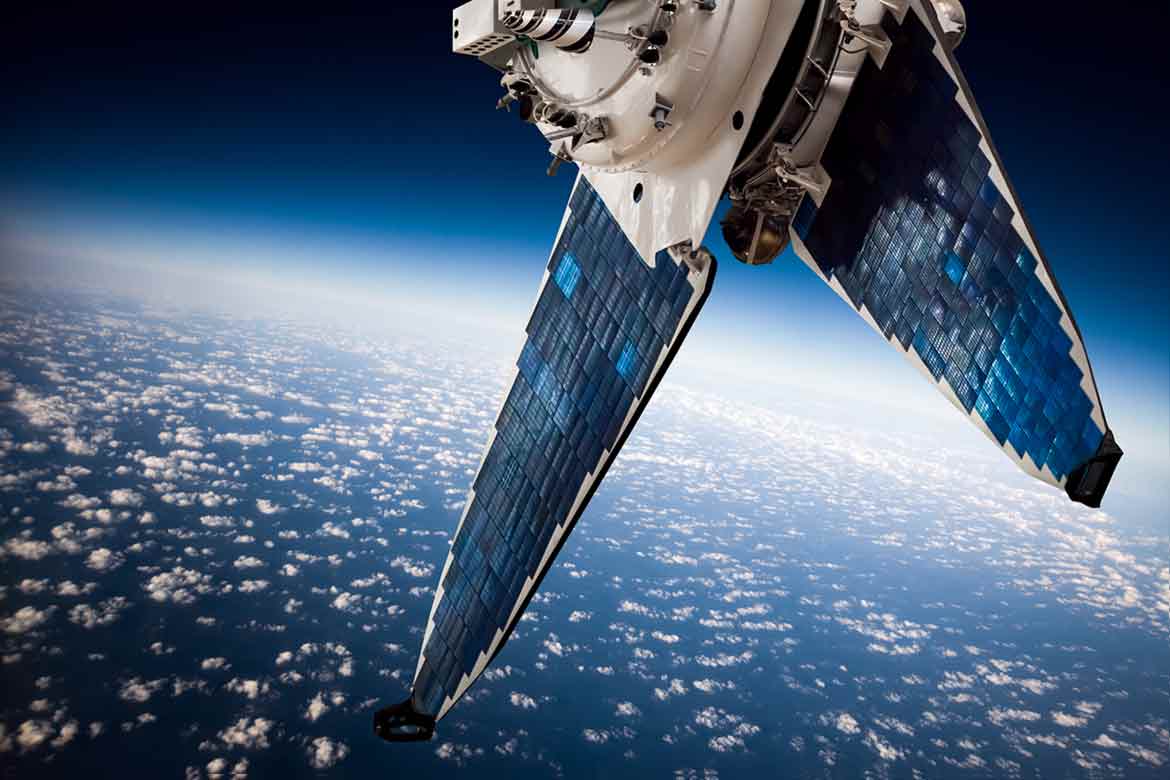Lately, Indian has been observing a sudden rise in interest in satellite communication. Recently, some telecommunications companies have sought a share in the 27.5 GHz – 29.5 GHz frequency, the frequency that has been determined globally for space communications or Spacecom.
What is space communication?
Space communication is an electronic communication package that is stationed in Earth orbit. Its main purpose is to initiate or assist in the field of communication via space. It has made a major contribution in international communication.
Attempts in this field?
Global companies are attempting to build and deploy a “mega-constellation” via hundreds or thousands of satellites to provide affordable high-speed Internet services for businesses, governments, schools and individuals. Forerunners in this field are Elon Musk and Jeff Bezos, they both are working on projects named Starlink and Kuiper respectively.
Realizing the potential of Spacecom, the Government of India released the draft of Spacecom Policy 2020. However, despite India’s impressive achievements in the space sector, development is taking place at a very slow pace.
Significance in Indian context:
Communication through satellite makes it possible to reach almost all geographical areas, mainly to less populated areas. Wireless and mobile communication applications can be easily set up by satellite communication.
Satellite broadband provides instant service. Satellite broadband does not require cabling to transmit signals to commercial installations, including machine-to-machine in homes and IoT, which ultimately reduces cost and provides cheap internet. According to a report called Space India 2.0, the cost to cover one square kilometre in space is between $1.5 and $6. In contrast, the cost of underground infrastructure required to cover the same area is between $3,000 and $30,000.
Spacecom will be used for global mobile communications, private business networks, long distance telephone broadcasting, weather forecasting, radio/TV signal transmission, intelligence gathering in the military, navigation of ships and aircraft, connecting remote areas and there it is used in a variety of applications like distribution of television signals etc.

Also read:Space Tourism: World’s First Space Hotel Will Welcome You From 2027
In terms of portability, it comes very handy. Each earth station can be relatively quickly removed from one location and re-installed elsewhere during disaster situations.
Not an easy path to cover:
Despite the proliferation of High-through put satellites across the globe, India is still using conventional satellites. The use of conventional satellite technology in India does not make satellite broadband commercially viable.
Besides, despite the ‘Make in India’ mission, there is a lack of domestic participation for building space infrastructure. ISRO is suffering from the burden of its routine operations like launch of satellites, manufacturing of launch vehicles etc. These primary and more important projects hinders the way of ISRO to work in new projects.
According to an ISRO study, India currently has a share of only 3 percent of the $360 billion global space market. Satellite broadband services in India are primarily aimed at the B2B sector, which has a market size of around $100 million.
What situation demands?
Privatization in this sector is the utmost need of the hour. Countries with advanced space technology have privatized most of the Spacecom blocks in the value chain. Spacecom experts estimate the market for satellite broadband services with the upcoming ‘openspace’ could be more than $500 million. Thus there is a need to create suitable systems to help nurture these industries and create a comprehensive ecosystem.
Moreover, the concern related to this sector is to ensure that this high technology is prevented from falling into the wrong hands. The government should legislate with respect to the operation of private players in both the commercial and strategic sectors of the space sector so that technology is not abused.
To ensure this,the allocation of India’s space resources should be done in a fair and non-arbitrary manner among the people here and it should be prepared by law under Articles 14, 19 and 21 of the Constitution of India. India needs favourable regulations and policy with adequate spectrum allocation, ease of doing business, necessary capacity building etc.
Ensuring the ‘ease of doing business’ in this sector is imperative for blooming of this industry. There is a need to consolidate the powers and functions of the stakeholder ministries in this area into a single body that will authorize all applications for the deployment and operation of Spacecom assets and provide assurance for a fair, non-arbitrary, predictable and timely decision.
